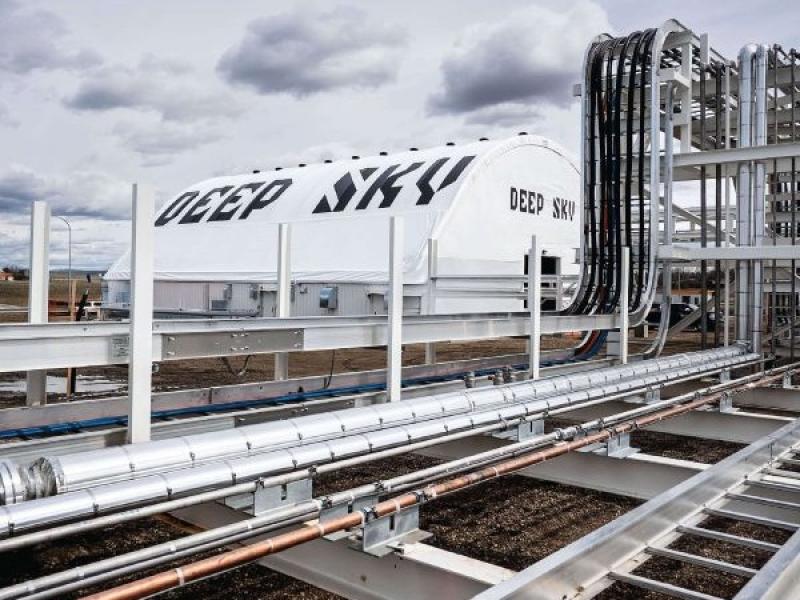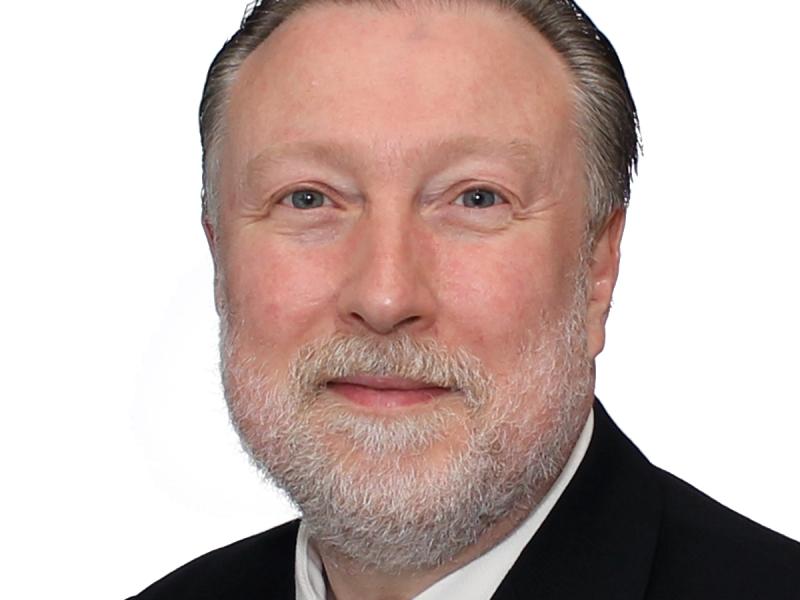
After 12 months of construction, Deep Sky has started operations at Alpha in Innisfail, Alta., where the company is testing technologies to filter carbon dioxide from the atmosphere for long-term underground storage.
Montreal-based Deep Sky calls it the first project in North America to sequester the greenhouse gas captured from the air in saline aquifers. As such, Alpha is effectively part of a competition to see which technology will be the best option to scale up for industrial-level applications.
It will also generate credits that have been pre-purchased by Microsoft and RBC.
Up to 3,000 tonnes of carbon dioxide (CO2) are expected to be captured per year from the facility located on a five-acre site between Calgary and Edmonton. Once liquefied, the CO2 will be trucked to the Meadowbrook Carbon Storage Hub in northern Alberta to be locked away in saline aquifers.
“There were just so many people that told us that we couldn't do it and the timeline that we set for ourselves,” Alex Petre, CEO of Deep Sky, said in an interview with Sustainable Biz Canada. “So we're very proud of what we've been able to do for the past 12 months.”
The insights from Alpha's operations will inform its plans for commercial-scale carbon removal facilities expected to capture 500,000 tonnes of CO2 per year.
How Alpha will operate
Alpha has 12 concrete pads where carbon removal equipment can be installed, with three currently operating – direct air capture (DAC) technologies from Quebec-based Skyrenu and U.K.-based firms Mission Zero and Airhive. For the next phase, which will take place this fall, an additional four testing operations will be added.
A phased approach means “we can basically accommodate them as well as their delivery schedules in the best way possible,” Petre said.
The carbon removal machinery will be powered entirely by solar energy, with 15 full-time staff on site.
Upon capturing and liquefying the CO2, it will be moved to a storage hub operated by Deep Sky’s partner Bison Low Carbon Ventures that is a three- to four-hour drive away from Alpha. There, the greenhouse gas will be injected into underground reservoirs to be held for over 1,000 years, Petre said. To ensure there are no leaks, the site will be monitored.
While it is a test site, some commercial activity will take place. RBC and Microsoft have already paid to remove 10,000 tonnes of CO2 over 10 years, and have the option of purchasing an additional one million tonnes of removal.
Another major backer of Deep Sky is the Breakthrough Energy Catalyst, a climate solutions investment platform founded by Bill Gates that provided a US$40-million grant commitment for Alpha’s development.
Reducing the cost of DAC

Critical to Alpha will be finding a way to bring the cost of DAC down. The World Economic Forum estimates removing a ton of CO2 from the atmosphere currently costs between US$600 and US$1,000 and must fall to US$200 for mass adoption. The nascent industry is highly energy-intensive and expensive today, leaving it far from wide-scale adoption.
To pave a path to commercialization, Deep Sky is trying a variety of technologies from different providers to determine which is most viable.
The operations at Alpha will seek to address questions around energy use, how the DAC technologies operate in Alberta’s weather that swings from one extreme to another, and how the technology is suitable “in terms of execution, in terms of supply chain, all of those things, to actually start producing at a much bigger scale.”
Alpha will also serve as an education centre where the world can observe and learn from the technology at work, Petre said.
Maintaining ‘the same speed and passion’
Her goal is to have Deep Sky operate 100 commercial-level sites across Canada, each with the capacity to capture and store half a million tonnes of CO2 annually. The company’s team is working on front-end engineering for such projects, she added.
While carbon removal has caught the attention of the world for its potential to effectively reverse climate change, it has been criticized as far more expensive than other decarbonization efforts and a technology that cannot effectively scale.
“I think it's an interesting stance to take so early on in the lifetime of an industry,” Petre said in response. The solar, wind and electric vehicle industries faced similar complaints in the past, she continued, but have seen their costs plummet. She expects carbon removal can walk that same path.
“We're going to continue to pursue the problem and the challenge with the same speed and passion that we have pursued building Alpha, because we believe it's fundamentally needed.”
Deep Sky plans additional announcements about its customers and funding later this year, she said.










